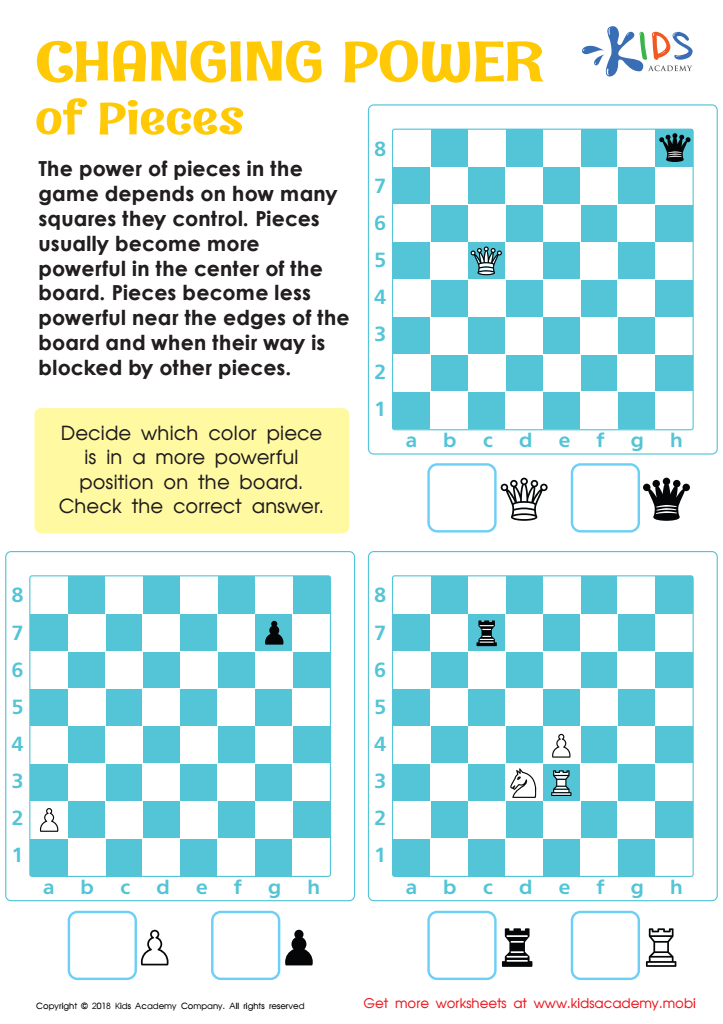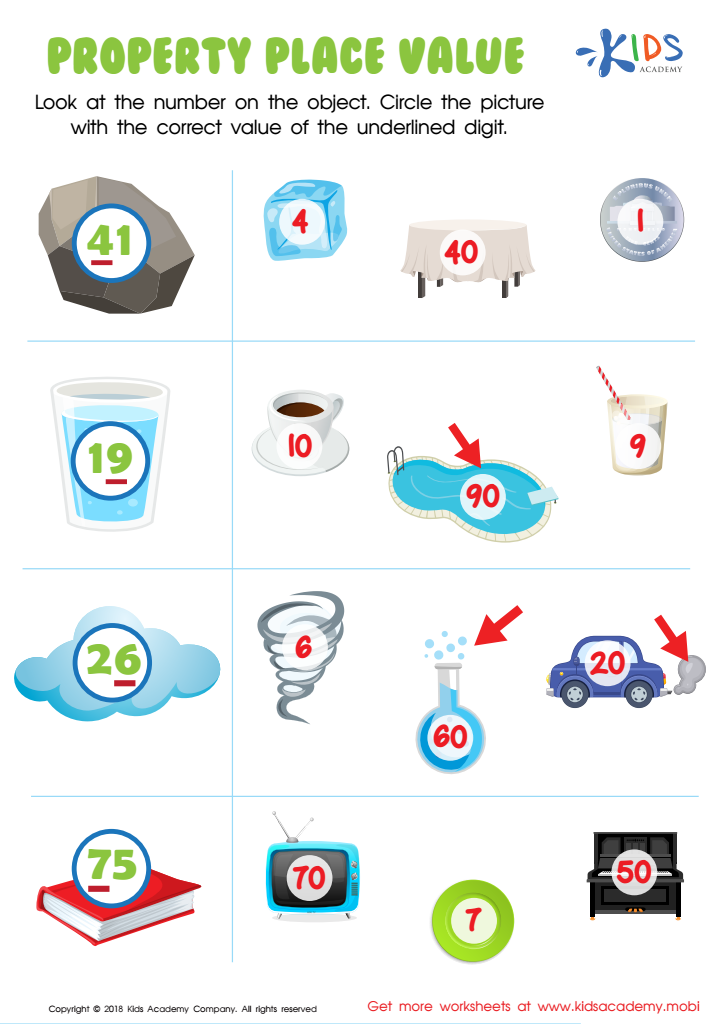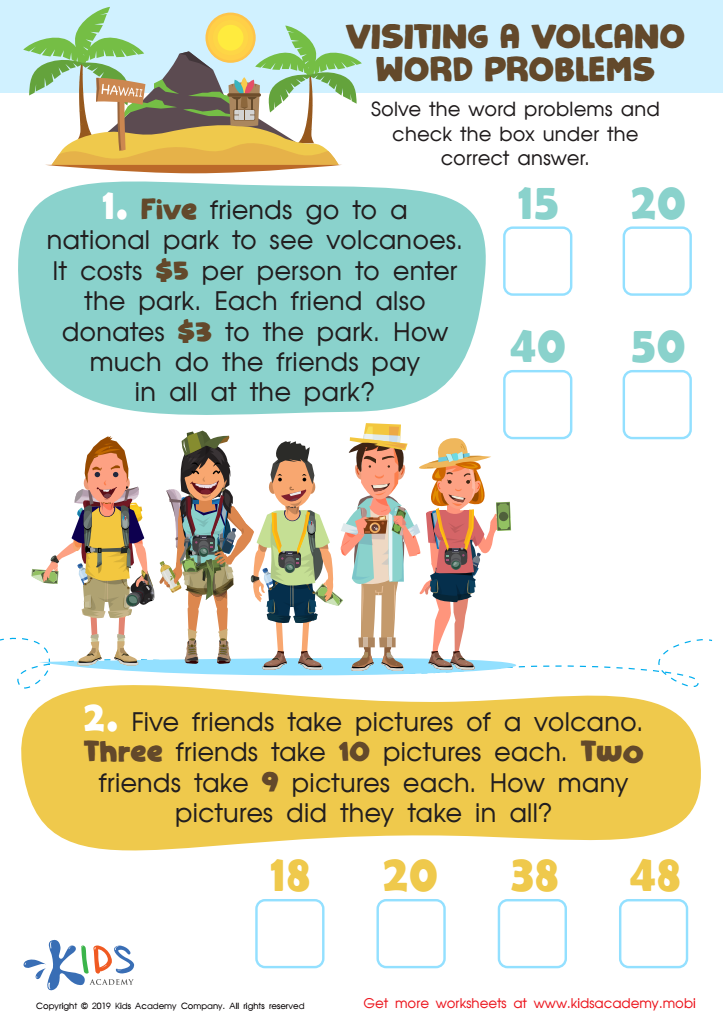Practicing multiplication Normal Worksheets for Ages 4-7
3 filtered results
-
From - To
Welcome to our "Practicing Multiplication Normal Worksheets" designed specifically for children aged 4-7! These interactive worksheets provide an engaging and effective way for young learners to grasp essential multiplication concepts. Packed with colorful visuals and age-appropriate exercises, these worksheets help build foundational math skills while keeping the learning process fun and exciting. Each activity is tailored to strengthen your child's understanding of multiplication through repetition and practice. Whether at home or in the classroom, these resources make it easy for parents and teachers to support skill development. Start your child’s multiplication journey today and watch their confidence soar!


Changing Power of Chess Pieces Worksheet


Property Place Value Worksheet


Visiting a Volcano Word Problems Worksheet
Practicing multiplication for ages 4-7 lays a strong foundation for children's mathematical understanding and problem-solving skills. At this early stage, children's brains are rapidly developing, making it crucial to introduce concepts that will support their cognitive growth. Multiplication, although often introduced slightly later, can start to be explored in engaging and playful ways. Through games, visuals, or everyday examples, children can comprehend the concept of "groups of" which simplistically defines multiplication.
Early multiplication practice enhances not only number fluency but also critical thinking abilities. It encourages children to recognize patterns, build confidence, and develop resilience when tackling new challenges. Understanding multiplication sets the stage for more complex operations such as division, fractions, and even early algebra.
Furthermore, practicing multiplication encourages a collaborative learning environment. Teachers and parents can work together to make learning fun and interactive. The social aspect of shared games and activities creates strong bonds and reinforces positive attitudes towards math.
Ultimately, caring about early multiplication practice empowers children to succeed academically. Investing time and effort into developing these skills yields long-term benefits in their mathematical journey, fostering both competence and enthusiasm for learning.
 Assign to My Students
Assign to My Students




















